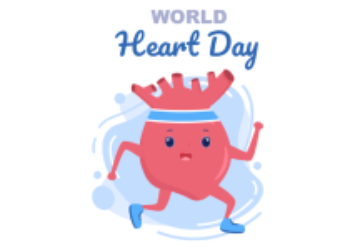NCD Watch
About Heart Attack
20 September 2022 (Tue)

Myocardial infarction, or heart attack, occurs when blood supply to the heart muscle becomes blocked. It is a major public health issue affecting over 7 million individuals each year globally. In Hong Kong, acute myocardial infarction is a leading cause of mortality with 1417 registered deaths in 2021. In 2020, the disease accounted for more than 7700 inpatient discharges and deaths in public and private hospitals.
A number of risk factors can increase the risk of having a heart attack. An international study with over 29000 participants from 52 countries reported 90% of myocardial infarction worldwide were collectively attributed to nine potentially modifiable behavioural and biomedical risk factors, including cigarette smoking, unhealthy eating with inadequate consumption of fruit and vegetables, a lack of sufficient physical activities, excessive alcohol consumption, abdominal obesity, high blood pressure, diabetes, suboptimal blood lipid levels, and stress.
Heart attack is a medical emergency. A systematic review and meta-analysis from 35 countries or regions (including Hong Kong SAR) reported that most people recognised chest pain or discomfort as the predominant symptom of heart attack, but there was limited knowledge about other typical symptoms. Members of the public should get familiar with the heart attack warning signs and symptoms (including chest pain or discomfort; pain or discomfort in arm, neck, jaw, shoulder or back; lightheadedness and shortness of breath) and acts fast to get medical attention if indicated.
To prevent heart disease and reduce the risk of heart attack, members of the public are urged to lead a healthy lifestyle as follows:
- Do not smoke
- Eat a balanced diet
- Be physically active
- Refrain from alcohol consumption
- Maintain an optimal body weight and waist circumference
- Monitor and control “Triple H” (i.e. high blood pressure, high blood glucose and high blood lipids)
- Reduce stress
To promote heart health, the Department of Health will continue working in close partnership with other government bureau or departments as well as community partners to increase public awareness about the importance of healthy living, enhance personal health literacy as well as foster a health-enhancing environment.
Created by the World Heart Federation, World Heart Day informs people around the globe that cardiovascular disease, including heart disease and stroke, is the world’s leading cause of death and highlights the actions that individuals can take to prevent and control CVD. Members of the public are urged to pay attention to heart health and fight against this major public health threat by leading a healthy lifestyle, in support of the World Heart Day held on September 29. For more information about the World Heart Day, please visit world-heart-federation.org/world-heart-dayThis link will open in a new window.
Source: NCD Watch September 2022This link will open in a new window






































